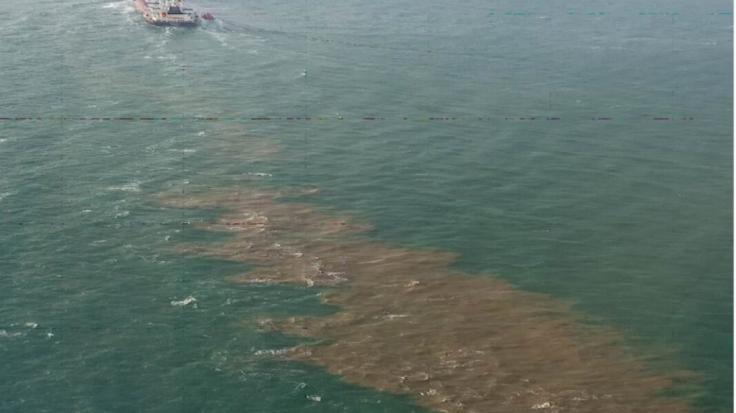As we already informed our readers, the Association informed the European Environment Agency and the European Commission about the environmental disaster that occurred on August 7, 2021, when 100 tonnes of oil have leaked off to the Black Sea near the city of Novorossiysk (Russia) from the terminal owned by the Caspian Pipeline Consortium, whose shareholders include Russia’s state monopoly enterprise ‘Rosneft’, Kazakhstan’s key enterprise ‘KazMunayGas’ (19 %), United States’ oil giant ‘Chevron’ (15 %) and Italy’s ‘Eni’ trust (2 %).
The Association pointed to the prospect of oil pollution of the Crimean peninsula with its unique underwater ecologic systems, including Opuksky Nature Reserve as a protected shore reserve located on the southern coast of the Kerch Peninsula on the Black Sea. We also emphasized the risks arising in this situation for the marine ecosystems of Bulgaria and Romania.
On August 27, the Association received an official response to its appeal from the Director of Policy, Coordination, LIFE Governance and Resources (ENV.A) of the Directorate-General for Environment of the European Commission, Mr. Gilles Gantelet. Response states that the European Commission very much shares our concerns about the serious environmental impacts from the oil spills that happened during oil loading operations at the Caspian Pipeline Consortium terminal near Novorossiysk.
At the same time, the European Commission recognized in this response the clear interest of the European Union in protecting the marine environment and promoting international collaboration in sea basins shared with non EU countries, but at the same time Commission pointed out that, unfortunately, the instruments of the European Union, such as Directive 2005/35/EC, 2005 to the discharge of pollutant substances in the internal waters, including ports, or territorial sea of an EU Member State, cannot be applied to this situation. Nevertheless, the European Commission pointed out to the Association the forms of further collaboration on oil pollution prevention and response, including within the framework of the European Union’s neighbouring policies and at the regional level of the Bucharest Convention, uniting the Black Sea states.
Source:arc.construction

